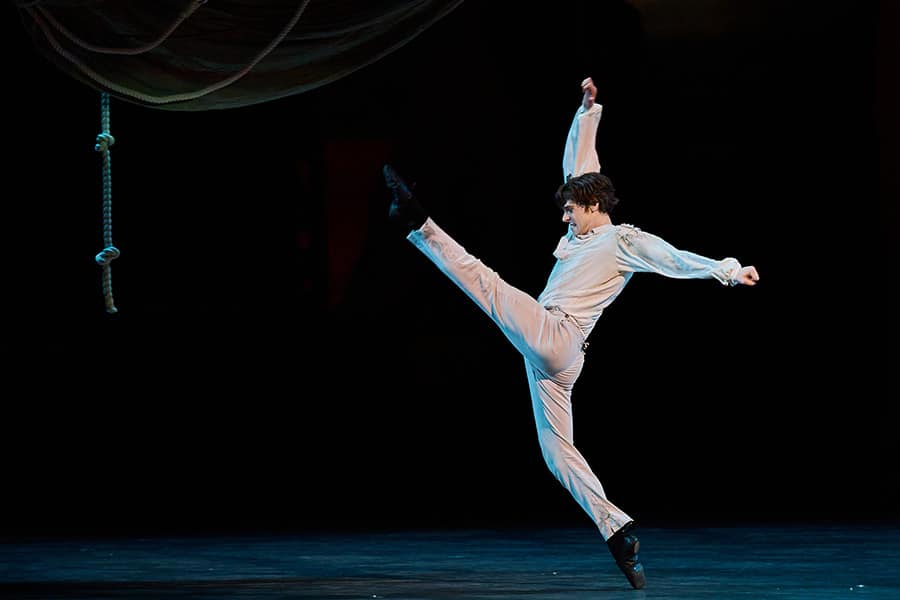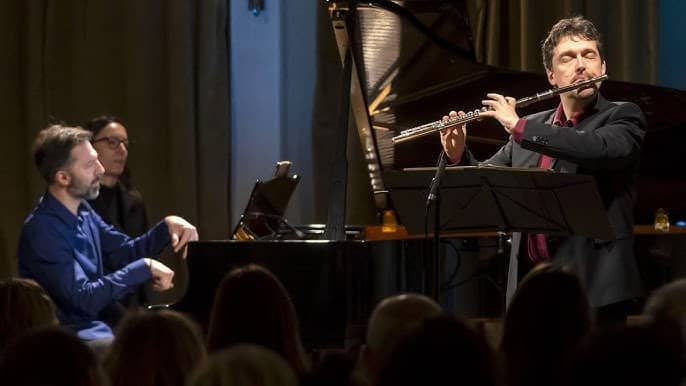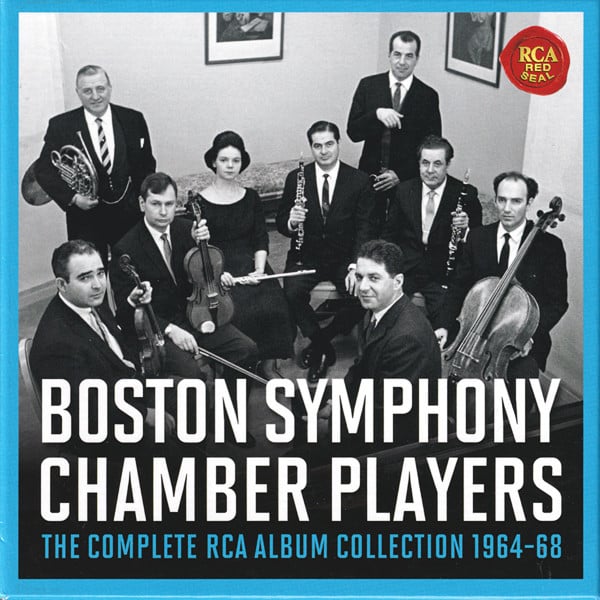Just in: Two US conservatories to merge
mainAgreement has been reached to merge the Boston Conservatory with Berklee College of Music, effective in June 2016. The merger will release millions of dollars in real-estate sales, as well as payroll cuts.
Neither of the schools is in the national top flight. Boston is also served by the variable New England Conservatory.
Report here.






To be fair: Berklee has always been a leading school for jazz and commercial music, one of the first, still highly regarded with a remarkable alumni list. It has never been a classical music school.
Totally true and very good point to be noted!
Perhaps instead of “variable,” you meant “venable”?
Perhaps you meant “venerable”?
Typing on the iPhone tripped me again. Yes, venerable.
1) “Just In” seems an odd headline, when you yourself reported on this merger when it first was announced….six months ago. You even link to it.
2) Agreeing with Mark Stryker above: Berklee is not a classical music school. But, it IS one of the best schools, and arguably the main school, focused on jazz, rock, commercial, etc. Let’s recognize what it is and celebrate it, rather than knock it down a peg.
As an NEC graduate, I hope he meant “venable!”
It’s hard to see the benefit to Boston Conservatory, except that it, perhaps, gives them a bit of financial stability by being a part of Berklee’s huge budget and endowment. One wonders how many faculty members and administration people will be laid off. There certainly is no direct benefit to the music students. It’s not likely that many of them would be interested in taking jazz courses at Berklee. Since dance and theatre have no place currently at Berklee, I can’t help think that these two Conservatory departments may, one day, be simply phased out.
I agree. With its endowment down to $8 million, I wonder if this merger was actually a way for Boston Conservatory to essentially shut down with a veneer of grace.
These adjectival descriptions of NEC and Berklee are just more of “Norman being Norman,” giving a little elbow jab to American institutions. Not to take so seriously, given the services he provides on this blog.
Berklee College of Music is probably the finest jazz school in the world – their Jazz Theory and film-scoring courses are simply the best to be found anywhere. Even Herbert von Karajan’s daughter, Arabel, studied at the Berklee College! As I recall, her aspirations were to write commercial music. And The New England Conservatory is one of the oldest and most distinguished conservatories in the United States – the equal, and in many ways the peer — of Juilliard & Curtis Institute. And by the way, Boston University School of Music is also one of America’s finest music schools – when I studied there, students were transferring in from Juilliard, Curtis, Indiana University-Bloomington and Oberlin to work with BU’s outstanding faculty. Also, Boston is also home to the Longy Conservatory of Bard College, which also offers a top-flight faculty and superb education. Indeed, Boston is a fabulous place for top-drawer music education.
One of my classmates at the School of Music of the School for the Arts of Boston University was the soprano Lauren Flanigan.
Another was the violinist Victor Romanul, who now plays with the Boston Symphony Orchestra. His grandmother — who sang at Victor’s wedding to Lisa, where I was best man — was the Metropolitan Opera soprano Stella Roman.
Still another of my B.U. classmates was the phenomenal pianist Hung-Kuan Chen, who won, for example, the Busoni competition and now teaches at Juilliard.
I have yet to hear of anybody from that class at B.U. who is not of considerable accomplishments.
Another example is Julia Plaster (now Julia Hays) daughter to long-time BSO bassoonist. Here is Julia’s brief C.V.: Denver’s Julia Hays has traveled the country with her skilled and diverse musical palette. She has performed Wagnerian opera in New York’s Carnegie Hall, Western swing at Los Angeles’ Gene Autrey Museum of History and Art, and Southern-style blues in Kerrville, Texas. Currently, she can be seen among many of Denver’s hotspots throwing down straight-ahead jazz arrangements with her trio.
One of my B.U. Music History professors, Dr. Joel Sheveloff, (sadly recently deceased) was among the most brilliant people I have ever had the pleasure to know. The recent new production of Berg’s LULU at the Met reminded me that I participated in a Sheveloff-led seminar on that opera at B.U. Dr. Sheveloff could whistle from memory all of the tone rows in LULU. In between whistling them, he excitedly explained their dramatic significance, and Berg’s techniques in employing them throughout the opera.
I know this is off the subject of the original post but…For anyone who knew the opera as well as you and Prof. Sheveloff, the Kentridge production, which ignored nearly all of Berg’s explicit stage directions and substituted its own narcissism in mistaken notion that the music and the stage directions were insufficient to carry the dramatic action, had to have been extremely difficult to take. Additionally just about everything was blocked way up stage, which served only to de-emphasize the presence of the actors and diminish the audibility of the singers, at least in the house.
earn something
This is just Berklee being Berklee. Despite its long term history as a great jazz music school, its short term history, as a business, has been bankrupting a generation of students at the behest of Roger Brown, its Yale MBA president, who is clearly more interested in making money for Berklee than providing a good education at a reasonable price. A ‘merger’ is exactly the kind of thing Roger Brown would be interested in.
Variable??? Venerable. Means afforded a great deal of respect
Variable. See previous reports on SD.
I actually searched for previous reports but apart from your forthright essay on the scandalous way NEC, more particularly its President, Tony Woodcock, treated Benjamin Zander a few years back, there is nothing “negative” in the various references to the institution that would justify your adjective in terms of SD reporting. Did I miss something? If by “variable” you mean stronger in some departments than in others, surely that would apply to ALL conservatories (and, for that matter, all educational institutions).